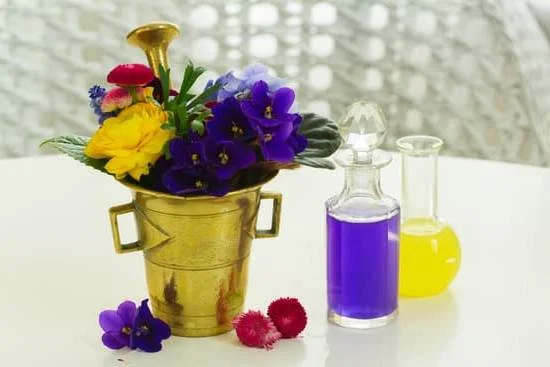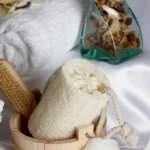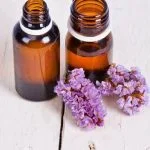Aromatherapy has gained immense popularity in recent years as more and more people are seeking natural alternatives to support their physical and emotional well-being. But what exactly is aromatherapy and why do people choose it as a holistic approach to healing?
Aromatherapy, at its core, is the therapeutic use of essential oils extracted from plants for their aromatic and medicinal properties. It is a practice that dates back centuries, with its origins deeply rooted in ancient civilizations such as Egypt, Greece, and India. These cultures recognized the power of scent as a means of healing and used aromatic substances for various purposes including religious rituals, perfumery, and medical treatments.
In today’s modern world, aromatherapy has made its way into mainstream wellness practices due to its remarkable effectiveness in promoting overall health and well-being. The use of essential oils has been scientifically studied and proven to have physiological and psychological benefits.
By inhaling or applying these natural extracts topically, the aromatic compounds interact with our brain’s limbic system – the seat of emotions, memories, and motivations – triggering various responses that can impact our mood, stress levels, sleep quality, pain perception, skin health, and more.
The allure of aromatherapy lies in its gentle yet powerful approach to healing. Unlike conventional medicine which often relies on synthetic chemicals or invasive procedures to address specific ailments or symptoms, aromatherapy takes a holistic approach by considering not only the physical aspects but also the emotional and mental well-being of an individual. This personalized approach allows individuals to tailor their own unique blend of essential oils based on their desired effects or needs.
In this article, we will explore the fascinating world of aromatherapy and delve into its origins, scientific foundations, diverse applications for different conditions such as stress relief, improved sleep quality, pain management, skincare routines, emotional well-being enhancement among others. We will also discuss emerging trends in the field and what the future holds for aromatherapy.
So, whether you are new to aromatherapy or a long-time enthusiast, join us on this aromatic journey to embark on a path of natural healing and well-being.
Understanding the Science behind Aromatherapy
Aromatherapy may seem like a mystical and new-age practice, but it is actually rooted in scientific principles. To fully grasp the power of aromatherapy, it is important to understand the science behind it.
At the core of aromatherapy are essential oils, which are extracted from various plants through methods such as steam distillation or cold pressing. These oils contain aromatic compounds that have unique healing properties. For example, lavender essential oil is known for its calming and relaxing effects, while peppermint essential oil is invigorating and can help with mental clarity.
When essential oils are inhaled or applied to the skin, they interact with the limbic system in our brain, which controls emotions and memories. The aromatic compounds in essential oils can trigger certain responses in the brain, leading to changes in mood and behavior. This is why certain scents can evoke strong emotions or memories.
In addition to their impact on the brain, essential oils also have physiological effects on our bodies. They can enter our bloodstream through inhalation or absorption into the skin and interact with our body’s chemistry. For example, some essential oils have anti-inflammatory properties that can help reduce pain and inflammation.
By understanding the science behind aromatherapy, we gain insight into how it can benefit us both mentally and physically. Whether it’s reducing stress levels, improving sleep quality, relieving pain, or enhancing mood and concentration, aromatherapy offers a natural approach to promoting overall well-being. With this knowledge in mind, we can tap into the power of essential oils and incorporate them into our daily lives for improved health and vitality.
Harnessing the Power of Natural Remedies
Aromatherapy has gained popularity in recent years due to its appeal as a natural remedy. Many people are drawn to the idea of using essential oils derived from plants and herbs to promote wellness and improve overall health. Aromatherapy offers a holistic approach to healing, focusing not only on physical symptoms but also on mental and emotional well-being.
One of the key reasons why people choose aromatherapy over conventional medicine is the preference for natural remedies. In a world that heavily relies on pharmaceutical drugs, there is an increasing desire to find alternative solutions that are gentle yet effective.
Aromatherapy offers just that, using the power of nature to support the body’s natural healing processes. Essential oils, such as lavender, eucalyptus, and peppermint, are known for their therapeutic effects and can be used to address a wide range of ailments and conditions.
Aromatherapy also stands out for its ability to promote overall wellness by addressing multiple aspects of health. Unlike many traditional treatments that focus solely on symptom management, aromatherapy considers the interconnectedness of the mind, body, and spirit. By utilizing essential oils through various methods like inhalation or topical application, individuals can experience a wide range of benefits including pain relief, stress reduction, improved sleep quality, enhanced mood, and more.
The appeal of aromatherapy lies in its extensive variety of essential oils with specific therapeutic effects. Each essential oil has its own unique set of properties that make them suitable for different purposes. For example, tea tree oil is known for its antiseptic qualities and can be used for skincare concerns like acne or fungal infections. On the other hand, chamomile oil is prized for its calming properties and is commonly used for relaxation and improving sleep quality.
In harnessing the power of natural remedies like essential oils, aromatherapy provides individuals with an alternative path toward well-being. With its holistic approach and diverse range of therapeutic effects, aromatherapy continues to attract people seeking natural solutions for their health concerns. By exploring the benefits of essential oils and incorporating aromatherapy into their lives, individuals can experience the transformative power of nature on their physical, mental, and emotional well-being.
Aromatherapy as a Stress Reliever
In today’s fast-paced and increasingly hectic world, stress has become a common and pervasive problem. The negative impact of chronic stress on overall health and well-being cannot be understated, making it crucial to find effective methods to combat it. Aromatherapy, the therapeutic use of essential oils extracted from plants, has gained recognition as a natural and effective solution for stress relief.
Research has shown that certain aromas can have a profound impact on the brain and nervous system, directly influencing mood, emotions, and stress levels. When inhaled, the aromatic compounds in essential oils stimulate the olfactory system which is linked to the limbic system – the area of our brain responsible for emotions and memory. This connection explains why specific scents have such powerful effects on our mental state.
Several essential oils are renowned for their calming properties and have been shown to reduce anxiety levels. Lavender is perhaps the most well-known essential oil for stress relief, with numerous studies demonstrating its ability to promote relaxation and improve sleep quality. Other popular essential oils for stress relief include chamomile, bergamot, ylang-ylang, and frankincense.
To incorporate aromatherapy into your daily routine as a stress reliever, there are several methods you can try. One common approach is using a diffuser to disperse the scent throughout a room or office space.
This allows you to passively experience the benefits of aromatherapy without any effort or direct contact with the oils. Another option is inhalation therapy where you directly breathe in the aroma from an essential oil bottle or by applying a few drops onto a tissue or handkerchief.
| Essential Oil | Benefits |
|---|---|
| Lavender | Promotes relaxation and reduces anxiety levels |
| Bergamot | Uplifts mood and relieves tension |
| Chamomile | Calms the mind and soothes nervous tension |
| Ylang-Ylang | Reduces stress, promotes relaxation, and supports emotional well-being |
| Frankincense | Eases anxiety and helps create a sense of peace and tranquility |
As stress continues to be a major concern for individuals worldwide, aromatherapy offers a natural and accessible method to find relief. By incorporating the power of essential oils into your daily routine, you can experience the soothing benefits of aromatherapy and improve your overall well-being. Whether through inhalation therapy or using a diffuser, these simple practices can help reduce stress levels and promote a greater sense of calm in both mind and body.
Aromatherapy for Better Sleep
Aromatherapy has gained significant attention for its potential to improve sleep quality. In today’s fast-paced and stressful world, many individuals struggle with sleep deprivation, which can have detrimental effects on overall health and well-being. This section will address the global sleep deprivation problem, highlight the soporific effects of certain essential oils, and provide practical tips and recipes for using aromatherapy to promote better sleep.
The Global Sleep Deprivation Problem
Sleep deprivation has become a widespread issue impacting millions of people worldwide. Inadequate sleep can lead to a range of health issues including fatigue, decreased cognitive function, impaired immune system, mood disorders, and even chronic conditions such as obesity, diabetes, and cardiovascular disease. The hustle and bustle of modern life often contributes to poor sleep habits, making it challenging for individuals to achieve restful nights.
The Soporific Effects of Essential Oils
Aromatherapy offers a natural approach to promoting better sleep by harnessing the power of essential oils. Certain essential oils are known for their relaxing and calming properties that can help induce a state of calmness conducive to sleep. Lavender oil is one of the most popular choices due to its mild sedative effects that promote relaxation and reduce anxiety. Other essential oils like chamomile, ylang-ylang, bergamot, sandalwood, and valerian also possess soothing qualities that aid in improving sleep quality.
Practical Tips and Recipes for Using Aromatherapy for Better Sleep
Incorporating aromatherapy into your nightly routine can significantly improve your ability to fall asleep faster and enjoy more peaceful slumbers. One effective method is using an essential oil diffuser in the bedroom before bedtime. Fill the diffuser with a few drops of your chosen relaxing essential oil or create a blend that combines multiple oils known for their soporific effects. Alternatively, you can make a linen spray by diluting essential oils in water and lightly spritzing your pillowcase and sheets.
Another way to incorporate aromatherapy into your nighttime routine is through a warm bath. Add a few drops of essential oil to your bathwater and immerse yourself in the soothing scent while enjoying the relaxing properties of the oils. To enhance the sleep-inducing effects, consider adding Epsom salts or magnesium flakes to your bath, which can further promote relaxation and help with muscle tension.
Experimenting with different essential oils and finding what works best for you is key to optimizing the benefits of aromatherapy for better sleep. It’s important to note that individual responses to aromatherapy may vary, so it may take some trial and error to find the most effective combination that suits your needs. By incorporating aromatherapy into your sleep routine, you can create a tranquil environment conducive to restful nights and wake up refreshed and rejuvenated each morning.
Aromatherapy for Pain Relief
Aromatherapy has gained recognition as an effective method for pain relief. In a world struggling with chronic pain and the limitations of traditional pain management, many are turning to aromatherapy as a natural alternative to reduce their reliance on medication. The use of essential oils in aromatherapy has been found to alleviate pain and provide anti-inflammatory benefits.
Chronic pain is a prevalent issue that affects millions of people worldwide, often resulting in reduced quality of life and limited mobility. Traditional pain management methods, such as over-the-counter or prescription medications, may come with unwanted side effects and the risk of dependence. Aromatherapy offers a holistic approach to pain relief by harnessing the power of natural remedies.
Certain essential oils have analgesic properties, making them effective in reducing pain levels. For example, lavender oil is known for its calming properties and ability to relieve headaches and migraines. Peppermint oil has a cooling effect that can soothe muscle aches and joint pains. Eucalyptus oil contains anti-inflammatory compounds that can ease discomfort caused by conditions like arthritis.
In addition to their analgesic properties, essential oils used in aromatherapy also have anti-inflammatory benefits. This means they can help reduce inflammation at the source of the pain, providing further relief. By addressing both the physical symptoms and underlying causes of pain, aromatherapy offers a comprehensive approach to managing chronic pain.
To incorporate aromatherapy into your pain relief routine, consider using essential oils topically through massage or adding them to bathwater for soaking. You can also create personalized blends by combining different essential oils based on your specific needs. However, it’s important to note that while aromatherapy can be beneficial for managing mild to moderate pain, it may not be suitable for severe or acute cases without medical guidance.
As more individuals seek natural alternatives to manage their discomfort, aromatherapy continues to prove its worth as an effective method for pain relief. By exploring the wide range of essential oils and their analgesic and anti-inflammatory properties, individuals can find a personalized approach to managing their chronic pain and improving their overall well-being.
Aromatherapy for Skin and Hair Care
In today’s society, there is a growing awareness of the potential harm posed by synthetic skincare products. Many individuals are seeking natural alternatives to keep their skin and hair healthy and vibrant. This has led to the rise in popularity of aromatherapy for skin and hair care, as it offers a holistic approach that focuses on both beauty and overall well-being.
Synthetic skincare products often contain harsh chemicals that can strip the skin and hair of their natural oils, leading to dryness, irritation, and other issues. Aromatherapy, on the other hand, utilizes essential oils extracted from plants to provide nourishment and rejuvenation. These oils are known for their therapeutic properties and can offer a range of benefits for the skin and hair.
One of the key advantages of using aromatherapy for skin and hair care is its ability to address specific concerns. Different essential oils have different properties that can target particular issues. For example, lavender oil is known for its calming and balancing effects, making it suitable for sensitive or irritated skin. Tea tree oil has antimicrobial properties that can help combat acne or dandruff. Rosemary oil stimulates circulation, promoting healthy hair growth.
To get started with aromatherapy for skin and hair care, it is important to choose high-quality essential oils that are pure and therapeutic-grade. These oils should be properly diluted before use to ensure safety and effectiveness. There are various ways to incorporate aromatherapy into your beauty routine, such as adding a few drops of essential oil to your skincare products or creating your own DIY recipes like facial masks or hair treatments.
| Essential Oil | Beneficial Properties |
|---|---|
| Lavender | Calming, soothing, balancing |
| Tea Tree | Antimicrobial, anti-inflammatory |
| Rosemary | Circulation-stimulating, hair growth-promoting |
| Chamomile | Soothing, anti-inflammatory, hydrating |
| Neroli | Regenerative, rejuvenating, toning |
Exploring the Emotional and Mental Benefits of Aromatherapy
Aromatherapy not only offers physical benefits but also provides a range of emotional and mental benefits. Scent-triggered memories are powerful, and aromatherapy can tap into this phenomenon to evoke positive emotions and enhance mood. The olfactory system, which is responsible for our sense of smell, is closely linked to the parts of our brain that control emotions and memories. This connection allows certain scents to have a profound impact on our mental well-being.
One of the main ways aromatherapy can benefit our emotional and mental health is through its ability to boost mood. Certain essential oils, such as lavender, bergamot, and rose, possess uplifting properties that help reduce feelings of anxiety and depression. Inhaling these oils or using them in diffusers creates a pleasant environment that promotes relaxation and tranquility.
Aromatherapy can also improve concentration and focus. Essential oils like peppermint, lemon, and eucalyptus have stimulating effects on the mind and can sharpen mental clarity. Whether it’s in the form of room sprays or inhalation sticks, incorporating these scents into your workspace or study area can enhance cognitive performance.
Numerous personal stories and testimonials highlight the transformative power of aromatherapy on emotional well-being. People report feeling more balanced, relaxed, and emotionally grounded after incorporating essential oils into their daily routines. The therapeutic benefits extend beyond just moments of relaxation – they can have a lasting impact on overall emotional wellness.
The Future of Aromatherapy and Evolving Trends
Predicting the future developments and innovations in aromatherapy
As aromatherapy continues to gain recognition and popularity, it is natural to wonder about its future and what developments may lie ahead. One trend that is expected to continue is the growth of personalized scent therapy. Just as individuals have unique preferences and needs when it comes to skincare or nutrition, the same applies to aromatherapy. In the coming years, we can anticipate more customized blends tailored to address specific concerns or goals.
Advances in technology may also play a role in shaping the future of aromatherapy. Currently, diffusers and topically-applied oils are the most common ways people use essential oils, but there is room for innovation.
We might see new application methods or devices that enhance the diffusion process, making it even more convenient and effective. Additionally, with the growing interest in wearable technology, there might be opportunities to integrate aromatherapy into wearable devices, allowing for continuous exposure to beneficial scents throughout the day.
Exploring emerging trends like personalized scent therapy and new application methods
Personalized scent therapy has started gaining traction within various wellness practices, and its potential applications are promising. By understanding an individual’s preferences, health goals, and sensitivities through consultations or surveys, experts can create unique blends specifically designed for them. This approach ensures a more targeted and effective use of essential oils.
Furthermore, research on new application methods continues to expand our options for incorporating aromatherapy into our daily lives. Inhalers designed specifically for essential oil use have become increasingly popular among aromatherapy enthusiasts. These pocket-sized devices offer a convenient way to inhale different scents at any time or place while providing a more controlled dosage compared to traditional diffusers.
Another emerging trend is mixing natural fragrances with other sensory experiences such as sound or light therapy. The combination of multiple senses can enhance relaxation, mood upliftment, or focus. As we further explore the potential synergies between aromatherapy and other wellness practices, more holistic experiences may arise as a result.
Encouraging readers to experiment with aromatherapy and create their own signature blends
With the ever-evolving trends and advancements in aromatherapy, it is an exciting time for newcomers and enthusiasts alike to explore and experiment with different essential oils. Aromatherapy offers a wide range of options for self-care, whether it’s stress relief, improving sleep quality, pain management, or enhancing skin and hair health.
For those interested in embarking on their aromatherapy journey, one way to begin is by creating their own signature blends. By combining various essential oils that resonate with them personally or address their specific needs, individuals can tailor unique scents that become an integral part of their well-being routine. It is important to research dilution ratios and safety precautions before creating blends to ensure safe and effective use of essential oils.
Conclusion
Aromatherapy has gained immense popularity in recent years as people increasingly turn to natural remedies for their health and well-being. This article has explored the origins of aromatherapy, the science behind it, and its various applications in promoting overall wellness. From stress relief and better sleep to pain management and skincare, aromatherapy offers a holistic approach that appeals to individuals seeking alternative forms of healing.
One of the major attractions of aromatherapy is its focus on natural remedies compared to conventional medicine. By harnessing the power of essential oils, which are extracted from plants, aromatherapy offers a gentle yet effective way to promote physical and mental health. Furthermore, aromatherapy takes into account the interconnectedness of mind, body, and spirit, treating individuals as whole beings rather than just addressing symptoms.
Another reason why people choose aromatherapy is its diverse range of essential oils and their specific therapeutic effects. Whether it’s lavender for relaxation, peppermint for pain relief, or rosemary for concentration, there is an essential oil for almost every ailment or concern. Aromatherapy provides a personalized approach to healing by allowing individuals to create their own signature blends based on their unique needs.
In conclusion, the allure and continual appeal of aromatherapy stem from its natural remedies, holistic approach, and diverse range of essential oils. As more individuals seek alternatives to traditional medicine and look for ways to enhance their well-being naturally, aromatherapy continues to gain prominence. By encouraging readers to explore the benefits of aromatherapy for themselves and engage in further research, this article aims to inspire a lifelong practice that contributes to overall health and happiness.
Frequently Asked Questions
What are the strengths of aromatherapy?
Aromatherapy has several strengths that make it a popular and effective therapeutic practice. One of its main strengths lies in its ability to address both physical and emotional issues simultaneously. Essential oils used in aromatherapy can be tailored to target specific ailments, such as headaches or joint pain, while also promoting relaxation and reducing stress levels.
Furthermore, aromatherapy is a non-invasive and natural approach to healing, making it accessible to a wide range of individuals. It also offers a versatile range of applications, including massage, bath oils, room diffusers, and inhalation methods, allowing individuals to incorporate aromatherapy into their daily routines easily.
What is interesting about aromatherapy?
What makes aromatherapy interesting is not only the power of scent but also its historical and cultural significance throughout different civilizations. The use of essential oils for medicinal purposes dates back thousands of years and can be traced back to ancient civilizations like Egypt, Greece, and China. These cultures recognized the therapeutic properties of various aromatic substances long before modern science was able to explain their effects.
Additionally, the diverse selection of essential oils available allows for endless combinations and blends that cater to individual preferences and needs. It is fascinating how certain scents can evoke different emotions or memories for each person based on personal experiences or cultural backgrounds.
How does aromatherapy calm you?
Aromatherapy has been found to have a calming effect on the mind and body due to several factors. One way it achieves this is through the direct impact that certain scents have on our brain chemistry. When we inhale essential oil molecules, they stimulate the olfactory system (related to smell) which then sends signals to various parts of our brain, including those responsible for regulating emotions and producing neurotransmitters like serotonin or endorphins known for their relaxing qualities.
In addition to this biochemical response, aromatherapy encourages deeper breathing patterns during inhalation sessions which naturally promote relaxation by slowing down heart rate and lowering blood pressure. The act of using essential oils as part of a self-care routine, such as aromatherapy massages or a warm bath with scented oils, can also contribute to a sense of calmness by creating dedicated moments of mindfulness and relaxation in our often hectic lives.

Are you looking for a natural way to improve your health and wellbeing?
If so, aromatherapy may be the answer for you.





